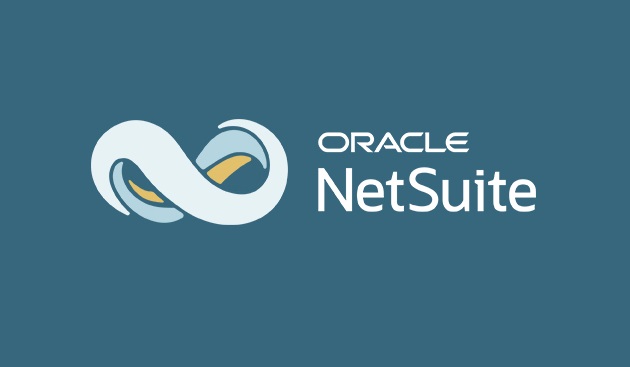In last month’s column, we spoke about how cash is king. While we discussed the merits of having ample cash, another one of my favorite business axioms is: “happiness is a positive cash flow.” Invoicing sooner, managing accounts receivable, and collecting sooner can cover up many sins.
This week included a conversation with a very successful business that does a very poor job of cash flow management. They are sinfully profitable, and “don’t bother” collecting from clients until they see they need some cash. They make a few collection calls or go visit the firm in person and pick up money. We’re not speaking small amounts, either. One example of a 9 month old receivable was “only” $52,000. However, the business has had very little bad debt write-off, has ample cash in the bank, and is letting their clients finance their operations through an AR, and letting clients use another business rule: collect fast, pay slow. Businesses shouldn’t be banks.
Realistic terms and collecting in a timely fashion are good measures of client satisfaction with a service. “The value of a service diminishes once the service has been performed.” Billing closer to the point of time of delivery will likely result in billings questioned less, be approved faster, and will be less likely to become a bad debt. We need to make it easier for our businesses to invoice, receive payments, work collections and manage the business cash flow. The size, style and scale of your business can make a difference on your approach. The main goal of this article is for you to be thoughtful about your own operations as well as those of your clients.
What Are We Trying to Accomplish?
Holding billing for a more convenient time can work, but finding more time later is not likely. For most of us, we are busy a significant portion of our time. Further, it takes more time to pick up work done in the past, review it for billing and make a decision. If you can make billing a natural part of your process, bills are more likely to get out on a timely basis. “The engagement is not done until the paperwork is finished.” Just because you’ve pushed out a client deliverable, not all of the paperwork is done.
I’ve promoted value billing and hotel billing as worthwhile approaches to increasing revenue by getting paid what your advice is worth and missing less billable time. Several pundits have jumped on the value billing band wagon and are promoting this extensively. I recommend tracking costs and setting up the billing to be recurring and paid through an ACH entry eliminating the collections efforts altogether as well as radically speeding up cash flow.
Of course, some firms delay billing trying to get all of the time and expenses in. This should be mitigated by asking for daily time sheets and expense entry. You’ll miss less time and expenses by capturing this information as you go. In effect, preparing a bill and delivering it with the work (hotel billing) or within a day or two at most after the work is completed will let you know as soon as possible if there is any client contingency with your work.
It is best if time, expense, billing, receipt of payments and collections can be rolled into a single system. A number of vendors have provided invoice and immediate receipt of payment capabilities, including Zoho (Invoice and Checkout and/or Books), Intuit QuickBooks Online, FreshBooks, Dynamics 365, Xero, Accounting Power and Open Systems with their field service billing module. The trickier part beyond simply invoicing might including this information in a general ledger or accepting payment, but the products named above can be made to do all of these things.
A few things that are more difficult for accepting payments include: web site payment mechanisms, links for payments in email, and making sure that you have PCI compliance. Based on today’s regulatory environment, you’ll want to use a third party payment provider and feel good about paying their discount rate (typically 2.25%-3.25%) to collect money more rapidly, with less overhead and without having to worry about PCI compliance.
If The Tools Are Good, Do We Have to Worry?
Unfortunately, conveniences like payment at the point of encounter (think lawn care, pool services or other field service operations) can lead to fraudulent activity if there are not proper controls around scheduling the service, project or engagement. Likewise, in professional services firms, you should have the control processes in place to make sure that all work that is completed is properly billed through the business. You may choose to have an exception for “friends and family”, but you don’t want the friend circle to extend too far. Further, the amount that you bill should not be discounted so far as to make it unwise or unprofitable to perform the work. One of the most sad analysis I performed in the last 30 days was for a firm that should have been netting 7 figures and that was struggling to make $100,000. Discounting of complex services was completely out of control.
Your firm or your client’s firm may be well served by having hour standards or budgets for certain types of work. After completion, you can review the budget and standards and discern if you have the flexibility to charge more. In the future, you may want to specifically engage the clients for a larger amount or ask them to consider another firm to provide the service. If a client doesn’t fit your model, having them leave your firm is a benefit because you have more time available for the right type of client.
Additionally, consider how you handle a team member that is excessively discounting or writing down work. Is there an education problem? Is there a control problem? How about a cultural problem? Too many professionals undervalue their worth to their clients and are afraid to charge a fair value. Frequently this is only a perception problem and not true in the market at all. This brings to mind a firm that I consulted for that believes that their clients are so cheap that if they raise their fees, the clients will leave. By the way, this firm is working an excessive number of hours and has trouble retaining staff. Do you think they might have a solution in raising fees?
May You Always Have Plenty of Cash (and Clients)!
It seems odd to say this two months in a row, but I’ve managed businesses and helped too many businesses that have a cash flow problem. For sure, it is easier to manage a business with ample cash flow, but you don’t want to be wasteful when times are good. A pretty good rule of thumb is to manage the business like you are having cash flow problems, but to never let anyone know that. You don’t want to be penny wise and pound foolish, but it is easy to throw money away when you have plenty…you know the saying: easy come, easy go.
You should choose for your own business, as well as your client’s businesses, what is believed to be “the best” course of action. If you choose the best interest of the clients, team members and owners, everybody should win!
Thanks for reading CPA Practice Advisor!
Subscribe Already registered? Log In
Need more information? Read the FAQs
Tags: Accounting, Technology




